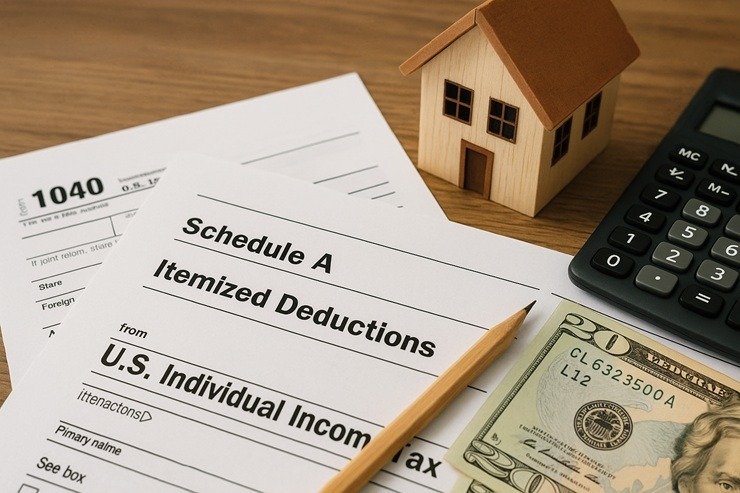Money
Understanding Taxes and Deductions: Quick Guide for First-Time Property Buyers

Buying a property is a massive accomplishment and a huge step in building personal wealth. But the financial journey doesn’t just stop once you get the keys. Your new property has a major relationship with your taxes, and knowing the rules of the game can save you a serious amount of money.
The Big Kahunas of Homeowner Deductions
For most people who buy a home to live in, a few key deductions are the stars of the show. These are the benefits specifically created to make homeownership more financially accessible.
First up is the mortgage interest deduction. This is a big deal. For many homeowners, this deduction is the single largest tax benefit they receive, significantly lowering their taxable income each year. In the initial years of your loan, a huge chunk of your monthly payment goes directly to interest, and the government lets you deduct that amount from your income. It’s a powerful incentive.
Next, you have the property tax deduction. Your local government charges property taxes to fund public services like schools, roads, and fire departments. You can deduct the amount you pay in these state and local taxes, which are often called SALT. There is a catch, though; the total SALT deduction, which includes property, state, and local income taxes, is currently capped at $10,000 per household per year. Still, every bit helps.
Finally, don’t forget about mortgage points. If you paid “points” to your lender to secure a lower interest rate on your loan, those points are generally fully deductible in the year you paid them. Check your closing documents for the details.
Turning Your Property into a Money-Maker
What if your new property isn’t just a place to live? Perhaps you plan to rent it out, or maybe you’ll use a room exclusively as a home office for your business. This is where things get even more interesting from a tax perspective. Once your property starts generating income, you unlock a whole new set of deductions, primarily through a concept called depreciation.
Depreciation allows you to deduct the cost of the property over its useful life, accounting for wear and tear. But here’s a pro tip: the IRS treats different parts of your property differently. The building itself (the real property) is depreciated over a long period, like 27.5 years for a residential rental. To really max out your deductions, you need to understand what tangible personal property is, because these items have different, often better, tax rules.
Tangible personal property includes physical assets you can touch and move that are used for business purposes. This is separate from the land and the building structure. For a rental property or business space, this could include:
- Appliances: Refrigerators, stoves, dishwashers, and laundry machines.
- Furniture and Fixtures: Items like desks, chairs, and certain light fixtures.
- Specialized Systems: Specific plumbing or electrical systems whose sole purpose is to serve business functions, not the general upkeep of the building.
- Removable Items: Things like shelving units, signage, or AV equipment.
Keep Flawless Records
The IRS requires proof. If you want to claim these deductions, you have to maintain meticulous records. This is non-negotiable. From the moment you close on the property, create a system for organizing all relevant financial documents.
Keep everything. Your closing statement is critical. You’ll also want to save all receipts and invoices for any improvements you make to the property, from a new roof down to new cabinet hardware. If it’s a rental, you need detailed records of all income received and every expense paid, including repairs, insurance, and property management fees. A simple spreadsheet or a dedicated software can make this process painless. Don’t be the person scrambling for crumpled receipts in a shoebox come tax time.
Making Smart Financial Moves
This might seem like a lot, but getting a handle on your property’s tax implications is one of the smartest financial moves you can make. You’ve already made the investment; now it’s time to make it work for you.
-

 Quotes3 years ago
Quotes3 years ago53 Motivational Gym Quotes to Fuel Your Workout
-

 Quotes10 years ago
Quotes10 years ago50 Most Powerful Quotes Ever Spoken
-

 Motivation5 years ago
Motivation5 years ago4 Fun New Hobbies To Try This Year
-

 Quotes1 month ago
Quotes1 month ago100 Motivational Quotes to Inspire You in 2026
-

 Quotes2 years ago
Quotes2 years ago43 Inspirational Quotes About Thoughts
-

 Quotes3 years ago
Quotes3 years ago105 Motivational Quotes by Famous People
-

 Quotes7 months ago
Quotes7 months ago100 Motivational Quotes to Start Your Day with Positivity
-

 Education1 year ago
Education1 year agoHow to Motivate Yourself to Study: 6 Proven Techniques






























